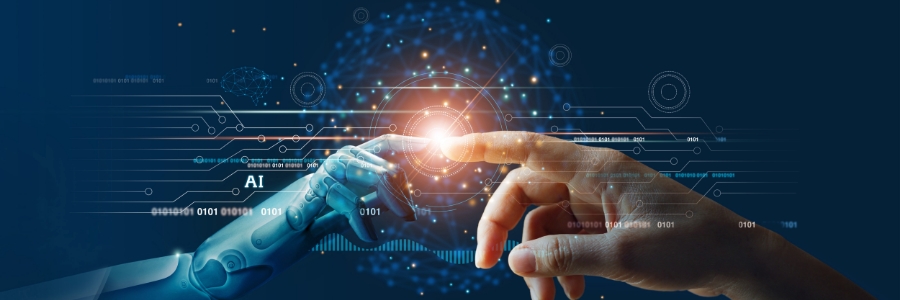Businesses are increasingly relying on Voice over Internet Protocol (VoIP) systems due to their cost-effectiveness and enhanced features. However, VoIP systems are not without security risk — these systems are also a potential entry point for cyberattacks.
CONTACT US:
VA: 703-991-0101,
DC: (202) 517-7710,
MD: (301) 880-4011
SUPPORT CENTER
GRS Technology Solutions
Blog
Unlock your team’s peak productivity with Viva Insights

Wondering how your team can get past its productivity plateau? Feeling like there’s untapped potential hidden within your workflows? Your search for answers ends with Viva Insights. This innovative tool from Microsoft uses the power of data to analyze your team’s collaboration patterns and identify areas for improvement.
Ditch the password! Unlock the power of mobile biometrics
In an age where we carry our lives in our pockets, mobile security is paramount. The standard of typing in a password to unlock or authenticate your mobile activities has endured for decades, but it’s time for a change. Enter biometric authentication, a cutting-edge technology that uses unique biological traits to verify the identity of users.
6 Common disaster recovery myths every business should know

Cyberattacks, system failures, and natural disasters have become a common occurrence, and they’re becoming increasingly more disruptive as businesses continue to digitize their operations. Having a disaster recovery plan is the best defense against these risks, but a shocking number of businesses are misinformed about what it takes to effectively recover from a disaster.
Understanding the role of cyber insurance

The evolving cyberthreat landscape poses a significant risk to small businesses. Cybercriminals often target such businesses due to the valuable data they possess and possibly less advanced security measures. To protect themselves, small businesses often implement safeguards including firewalls, data backups, and ongoing cybersecurity training for employees.
Unified communications: Top advantages for SMBs

If you want to streamline your company’s operations, unified communications (UC) might be the solution you’re searching for. UC offers numerous benefits to your business’s information system, many of which you may not know. In this article, we highlight how your business can harness cost-effective UC solutions to drive growth.
2024 design trends that will elevate your small business’s website
Your website is a powerful tool to showcase your brand story. 2024 emphasizes the use of narrative-driven layouts, interactive features, and personalized content to create a memorable experience. By seamlessly integrating these elements with your website’s objectives, you can craft a compelling narrative that resonates with your audience.
Applying NIST guidelines to improve password security

When it comes to password generation and security, many people tend toward bad practices, such as passwords based on their birthday or using the same password across different accounts. These practices can compromise the integrity of your passwords and, by extension, the security of the systems and data those passwords are meant to protect.
Essential laptop features for work from anywhere success

Remote work allows you to work from anywhere, from kitchens to coworking spaces. But to truly thrive in this flexible environment, you need a laptop that can keep up. This guide will simplify the selection process, helping you choose a laptop with the features and power to make your remote work life a success.
Leveraging AI to revolutionize business communications

Having implemented Voice over Internet Protocol (VoIP) for increased efficiency and cost savings, the next step for many businesses is to explore the power of AI-powered VoIP. This advanced technology leverages artificial intelligence (AI) to further enhance the user experience and optimize telecommunications operations.

